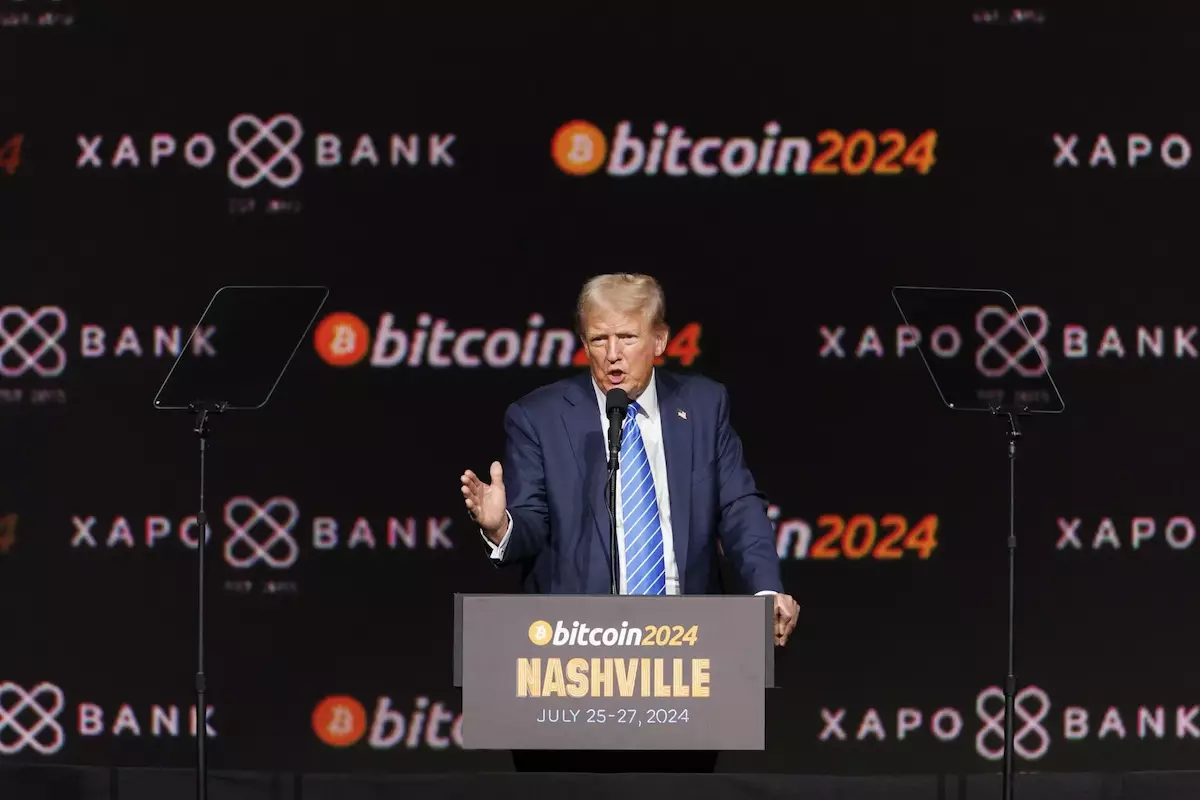The landscape of Web3 gaming is poised for transformative change in light of shifting political dynamics in the U.S. Following Donald Trump’s election victory, speculations about the future of digital assets and blockchain technologies are rampant. Given Trump’s evolving perspective on cryptocurrencies, the potential implications for Web3 gaming could be profound, encouraging innovation and perhaps even leading to a renaissance of sorts in the gaming sector.
A Changing Attitude Toward Cryptocurrency
When reflecting on Donald Trump’s initial stance towards cryptocurrency, one recalls his 2021 remarks, labeling Bitcoin a “scam” and expressing concern over its ability to endanger the U.S. dollar’s supremacy. Fast-forward to today, the atmosphere surrounding his administration’s view on digital currencies appears to have shifted considerably. Recent declarations indicate a pivot that welcomes rather than denounces digital assets. This shift aligns with a broader trend seen internationally where countries are increasingly adopting crypto-friendly regulations to foster innovation.
The evolving regulatory stance is particularly beneficial for Web3 gaming, which serves as a crucible for innovation, characterized by community engagement and digital asset ownership. Under a Trump presidency that favors deregulation, Web3 gaming could flourish—enabling greater integration of blockchain technology and cryptocurrency.
The Potential Economic Impact on Web3 Gaming
Web3 gaming revolves around tokenized economies that leverage blockchain to facilitate digital ownership and trade. By easing regulatory hurdles, a Trump administration could stimulate a more vibrant environment for both developers and players. Such regulatory clarity is crucial, as uncertainty can stifle creativity and investment, preventing developers from fully realizing their potential.
Looking back at the historical context, it is clear that the Trump presidency influenced the cryptocurrency landscape during his first term, marked by significant market swings. From Bitcoin soaring to nearly $20,000 in 2017 to subsequent corrections and recoveries, the volatility of the crypto market has always had profound implications for the economic ecosystem, including gaming. These fluctuations reflect not only the robust nature of digital assets but also the broader economic perceptions that shape investment decisions.
The Role of Regulatory Frameworks
One important point to note is Trump’s recent criticism of SEC Chair Gary Gensler’s approach to regulating cryptocurrency. Trump’s promise to appoint someone more aligned with pro-crypto policies signals a significant shift that could reshape the regulatory landscape for Web3 gaming. A regulatory body that is amenable to cryptocurrencies would likely lower the barriers for token issuance and trading within gaming platforms.
This newfound regulatory freedom would not only enhance the legitimacy of in-game assets—from virtual gear to digital land—but create a pathway for Web3 games to reach untapped markets, welcoming new users into the fold. The presence of a supportive SEC could also encourage institutional investment from larger players, allowing for accelerated growth in the space that has yet to achieve mainstream acceptance.
Moreover, a pro-crypto agenda could catalyze traditional gaming developers to investigate the integration of blockchain mechanics into their products. As companies begin exploring the integration of decentralized platforms, we could see unexpected collaborations that bring the promise of Web3 gaming into mainstream consciousness. The potential ripple effects extend well beyond cryptocurrencies and NFTs; they could also revive interest in innovation within the entire gaming industry.
As the U.S. defines its crypto policies, other countries may take cues from these legislative changes, highlighting the U.S. as a potential leader in the digital innovation race. The impact of a pro-crypto regulatory framework could reshape global markets, leading to collaborations in Web3 gaming and a more unified approach toward digital asset utilization across borders.
Returning to the White House presents Trump with an opportunity to expand upon the groundwork laid during his previous tenure and potentially solidify the U.S.’s position as a world leader in digital innovation. For Web3 gaming, this could translate into unprecedented levels of investment and development. Encouraging an environment where blockchain-based games can thrive presents opportunities for both established companies and emerging startups seeking to captivate the global audience hungry for entertainment and innovation.
Overall, the potential for investment and innovation in Web3 gaming under a Trump administration could lead to a more dynamic digital landscape. By embracing a cryptocurrency-friendly approach, the U.S. could not only enhance its own economic prospects but also serve as a benchmark for the rest of the world, prompting an international dialogue on the viability and future of blockchain technologies. The future is uncertain, but one thing remains clear: the implications of these political dynamics will be felt across the entire Web3 gaming ecosystem for years to come.

